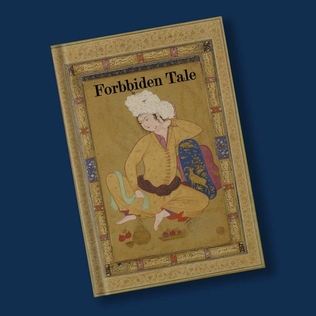Iranian rock refers to rock music produced by Iranian artists. Rock music has been popular in Iran since 1960s, with the emergence of singers such as Kourosh Yaghmaei, Farhad Mehrad, Fereydoon Foroughi and Habib Mohebian, but was largely forgotten after the Iranian Revolution. Like most rock styles, electric guitar and bass guitar and drums are the main instruments in this type of music. In some groups, keyboard and piano are very important.

Nasser Pourpirar was an Iranian writer and historical revisionist. He was known for his controversial theories questioning the academically recognized historiography of Iran from Achaemenids to the beginning of the Safavid period.

Kayvan Mirhadi is an Iranian guitarist, composer, conductor and music educator.

Nasser Fakouhi is an Iranian anthropologist, writer and translator.

Bijan Abdolkarimi is an Iranian philosopher, thinker, translator, and editor. His main interests are ontology, political philosophy and the critique of religious and intellectual traditions. He claims to challenge the dominant ideological discourse in Iran. He has participated in debates at Iranian universities and also in IRIB TV4 in which he has opposed the notion of Islamic humanities. He is also a scholar of Heidegger's thought and philosophy.

Mehrdad Oskouei is an Iranian independent film producer, film director, screenwriter of documentary films and film educator.

Jalal Jalal Shokouhi is an Iranian radiologist, writer and historical and cultural researcher. He is the chief of Iranian Society of Radiology and also the first person who made polymer samples of Saltman. He was one of the candidates for president election of Iranian Medical Council.
It's Always Late for Freedom is a 2008 Iranian documentary directed by Mehrdad Oskouei. The film depicts the life of three teenager boys in Tehran House of Correction. They are portrayed as victims of serious social problems such as addiction, poverty and divorce, which the Iranian society is faced with.
Bathroom Kornasian Persian: حمام کرناسیان is from the Qajar period and is located in Dezful, Iran, south of the Kornasian neighborhood. This work is listed in the National Iranian Art Series with number 8477.
Esmaeel Azar or Amir Esmaeel Azar is a professor of Persian literature and director of the Department of Persian Language at the Islamic Azad University, Science and Research Branch, Tehran, and director of the Farhangban Cultural and Artistic Institute. He also works as a presenter on literary programs on Iranian television, including the "Watching the Oath and the Beginning of the Word". He is a member of the Art commission at the Supreme Council of the Cultural Revolution, Director of the Persian Literature Department at the Economic Cooperation Organization, Member of the Naming Committee at the National Organization for Civil Registration of Iran, member of the scientific commissions of the Public Libraries of Iran and a member of the board of directors of the Comparative Literature Association of Iran.

The Iranology Foundation is a scientific and research institute in Iran and Iranian studies is the main field of its activities. The Foundation's studies and researches are all topics and issues related to various manifestations of Iranian culture and civilization. The institute was established in 1997 under the supervision of the Presidential Administration of Iran.
Alireza Feyz was an Iranian author, researcher of Islamic jurisprudence and Islamic philosophy, professor at the University of Tehran and jurist.

The Iranian Law and Legal Research Institute, formerly Allameh Legal Encyclopedia Research Center, is a scientific and juridical research institute, composed of four groups: encyclopedia writing, legal theorization and intellectualism, studies on social impact of laws, and studies on "extra" laws. Operating under the license of the Ministry of Science, Research and Technology of Iran, this research institute is one of the first legal entities to be recognized as a knowledge-based company by the Vice-Presidency for Science and Technology of Iran.

This is a bibliography of the works of Morteza Motahhari.

The Qajar Bathhouse is a historical bathhouse in Qazvin, Iran. It was built in 1647 in Safavid Iran by the order of the shah, and by Amingune Khan Qajar who was a Sardar of the Shah, and was initially known as the Shahi bathhouse.

Rasht embroidery is a Persian art and handicraft. It is a decorative felt panel with a fine detail chain stitch embroidery, originating in the city of Rasht in Gilan province, Iran. This style of craft flourished in the 16th and 17th centuries in what is now Northwest Iran. Rasht embroidery is listed as part of Iran's Intangible Cultural Heritage by UNESCO.

Galeshi, Rudbari or Deylami is a dialect of the Gilaki language spoken in the mountains of southern and south-eastern Gilan and western Mazandaran.

Forbidden tale: A comprehensive study on lesbian, gay and bisexual (LGB) in Iran was written by Kameel Ahmady, a British Iranian social researcher and anthropologist, and published by Mehri Publishing House in 2020 in London. The book is based on Ahmady's research from 2017 to 2018, which aimed to investigate the challenges and attitudes towards the Iranian transgender and homosexual community. The book later become available in Persian, Kurdish, French, Spanish, and English.

Abdolhamid Ziaei is a poet, literary critic, translator, and professor of Western philosophy and Eastern mysticism. He is a noted writer of sonnets in the Persian language.













